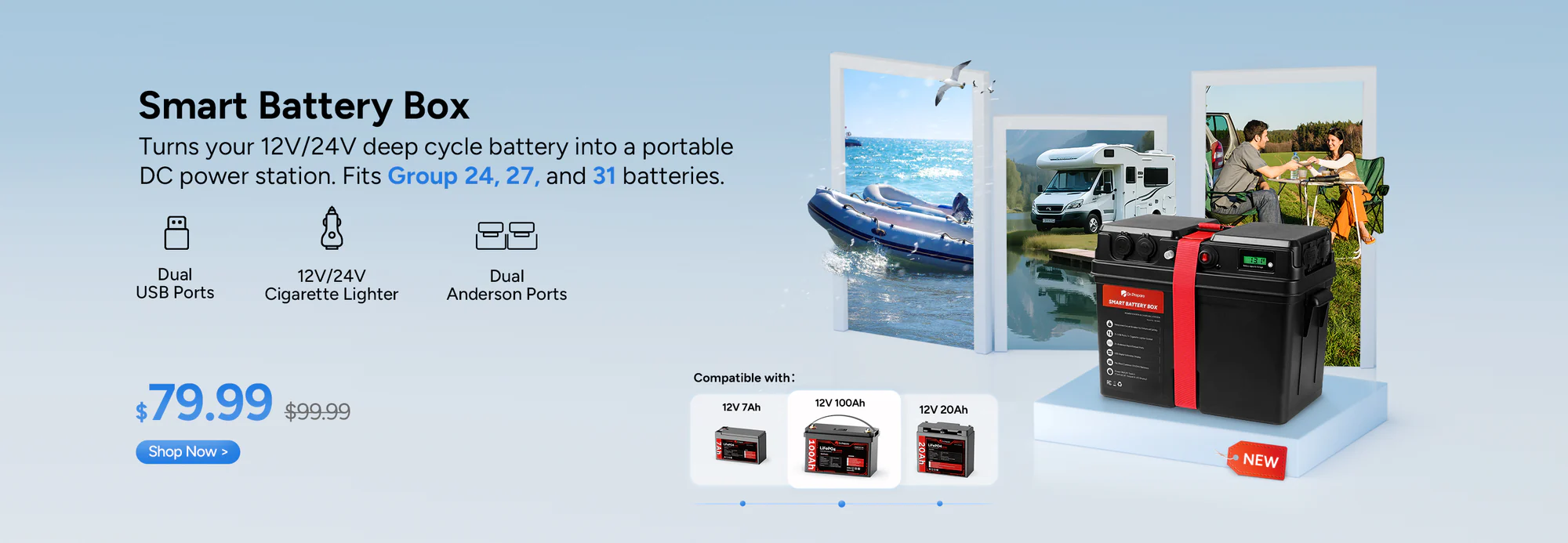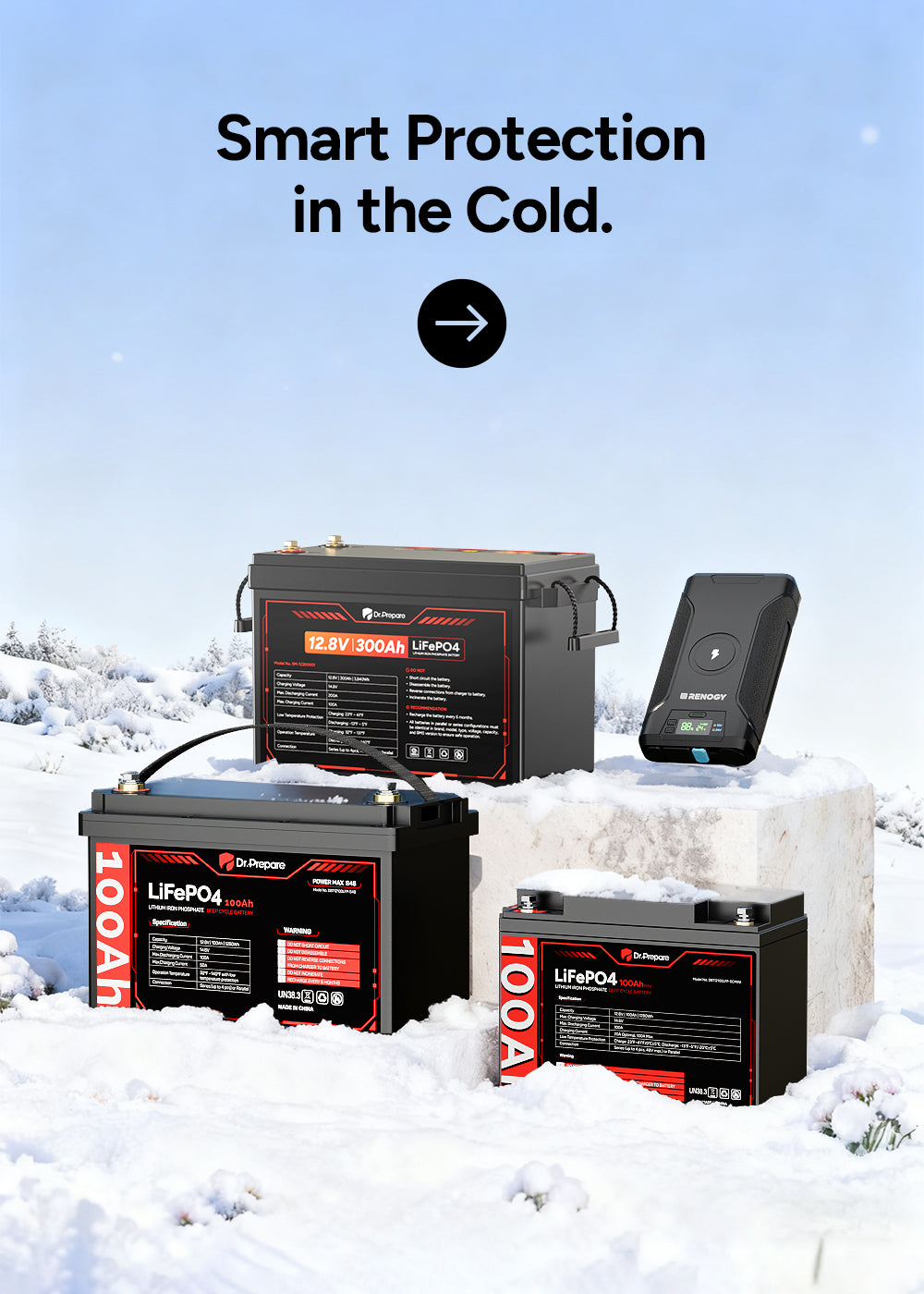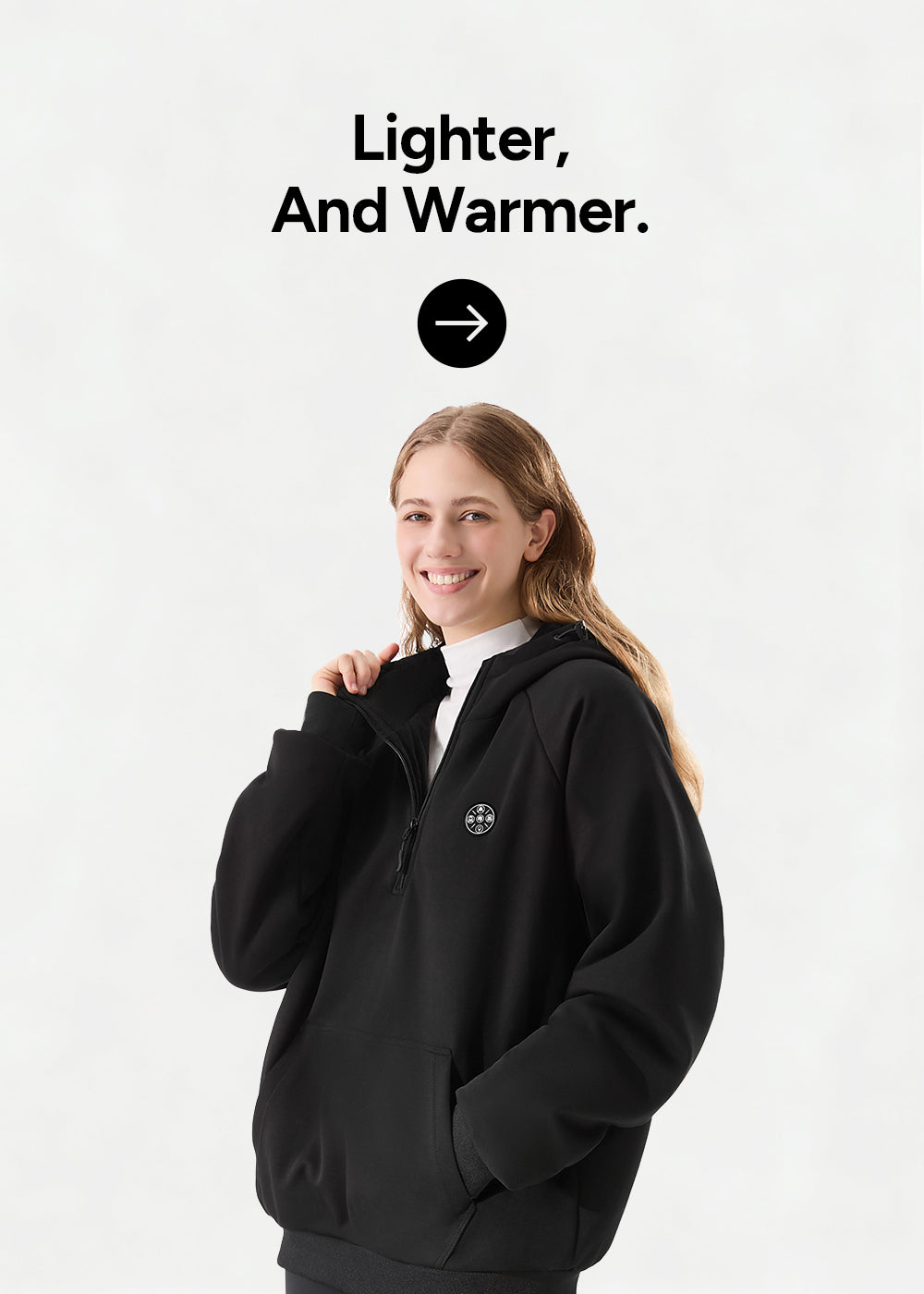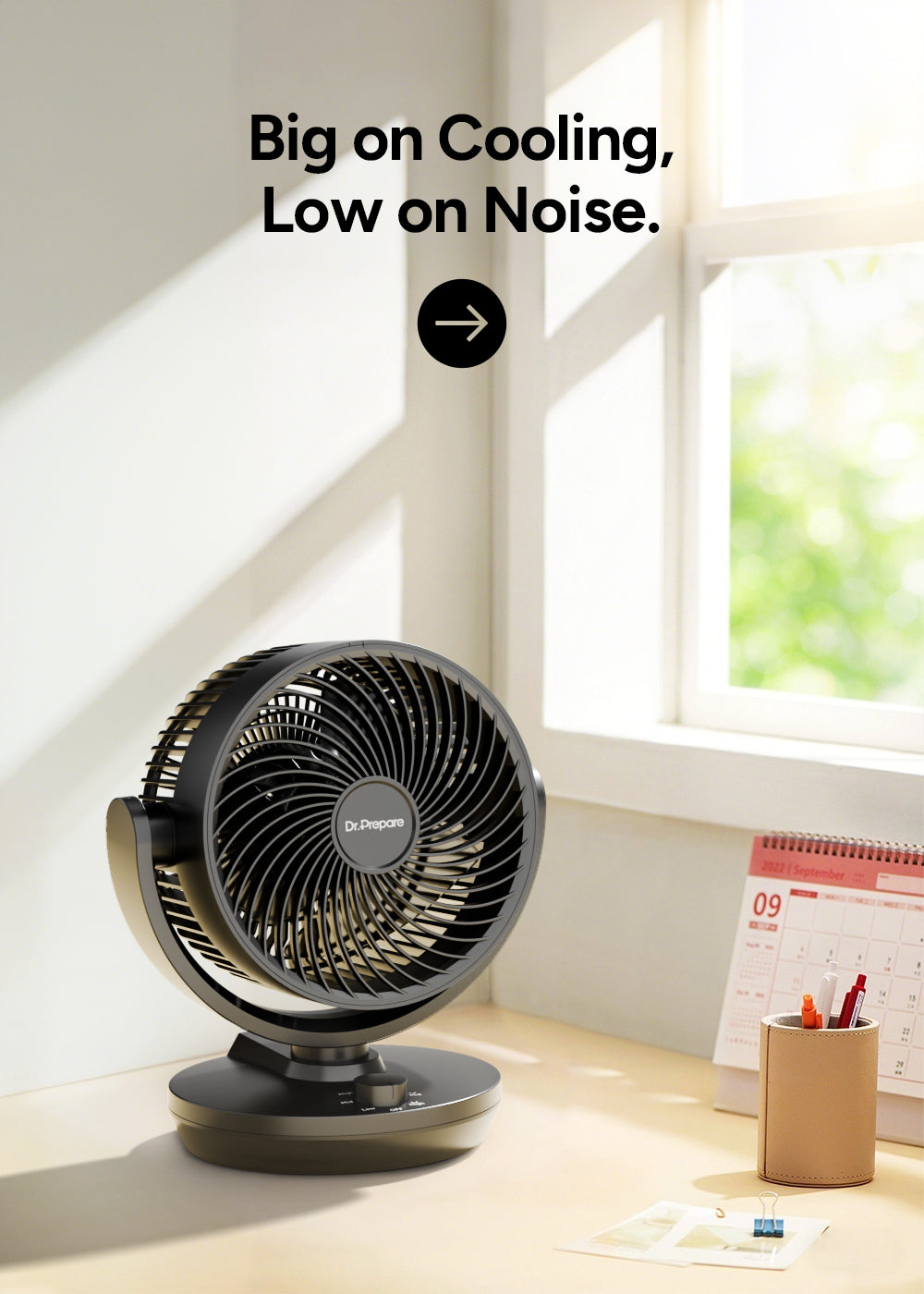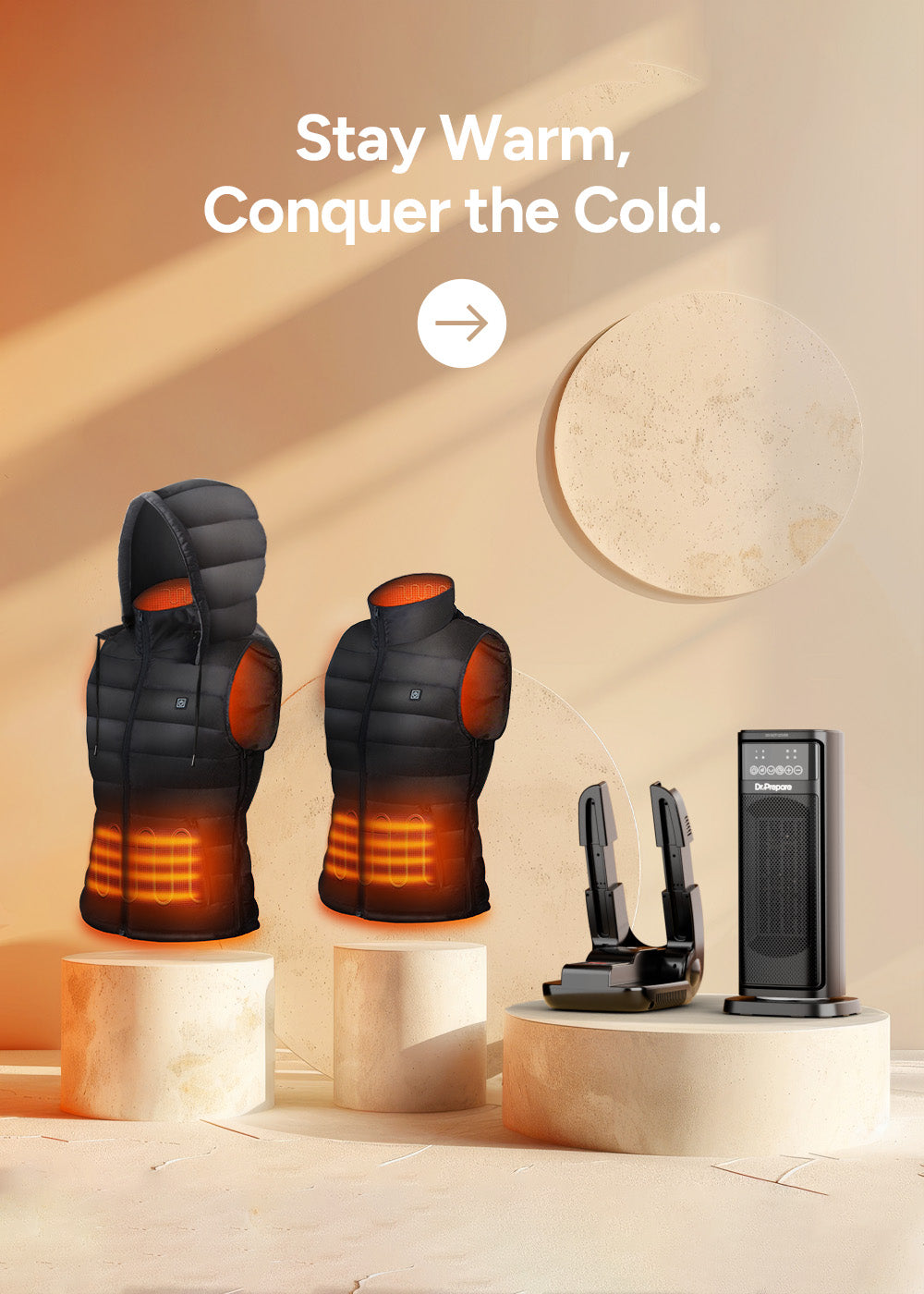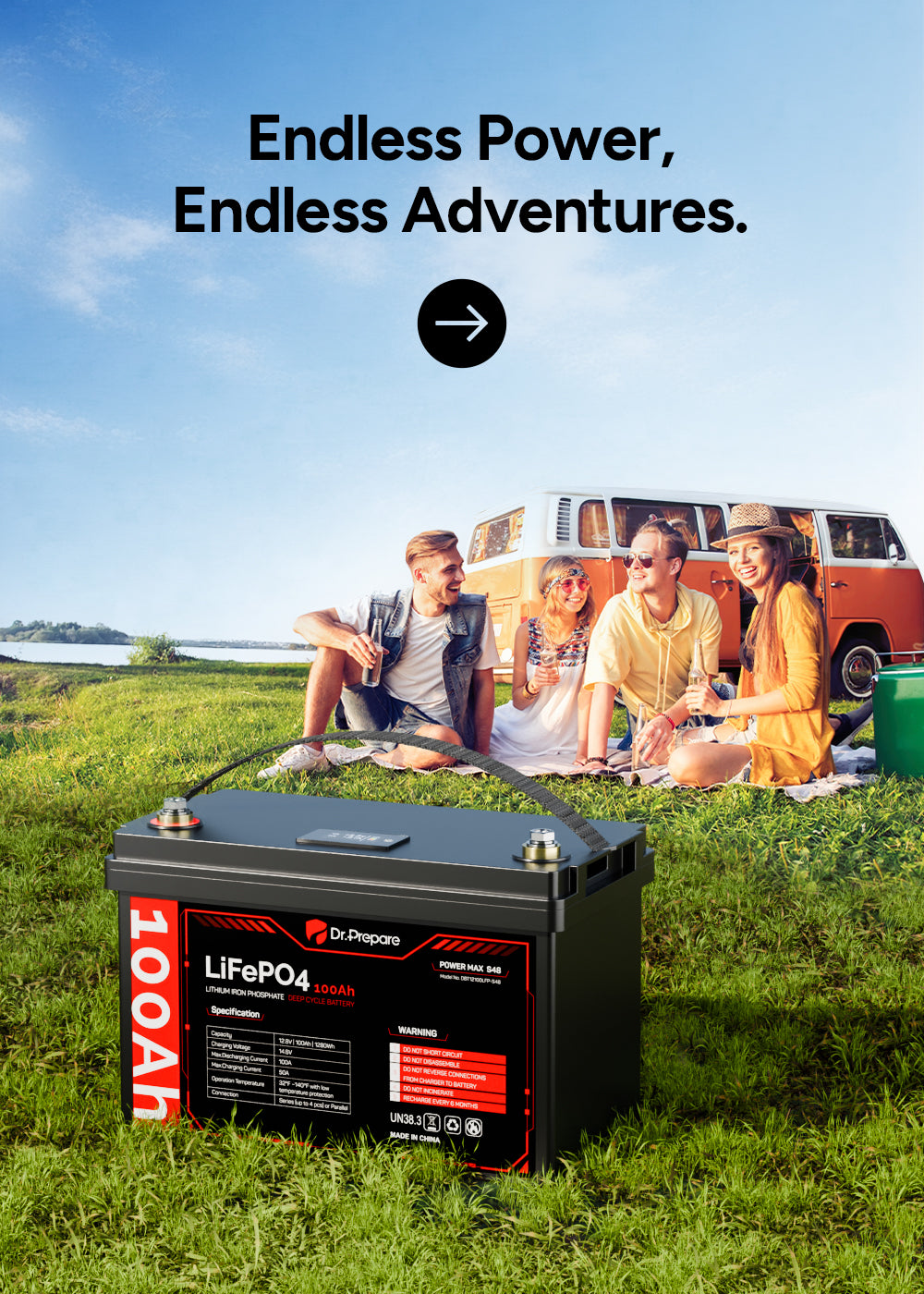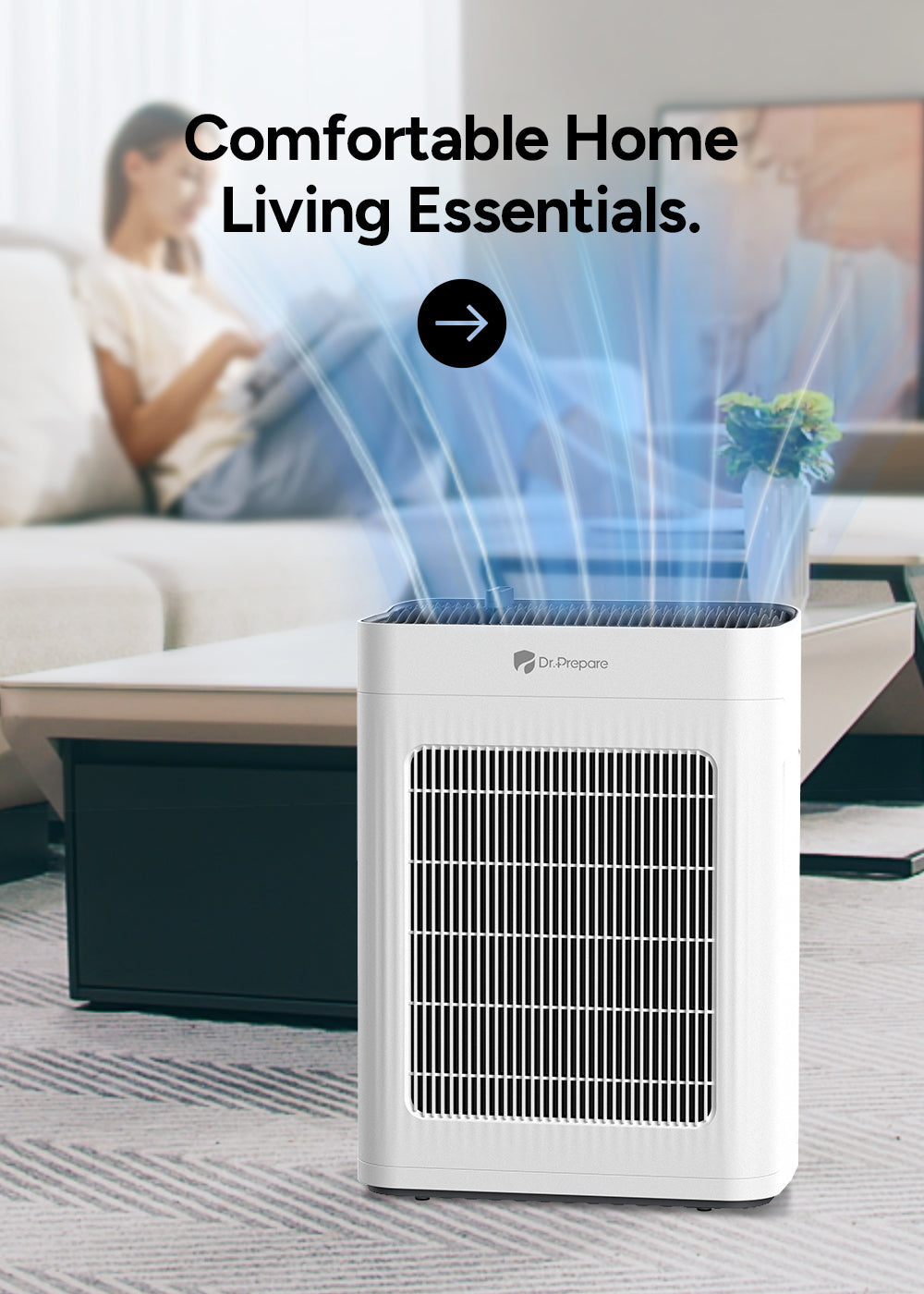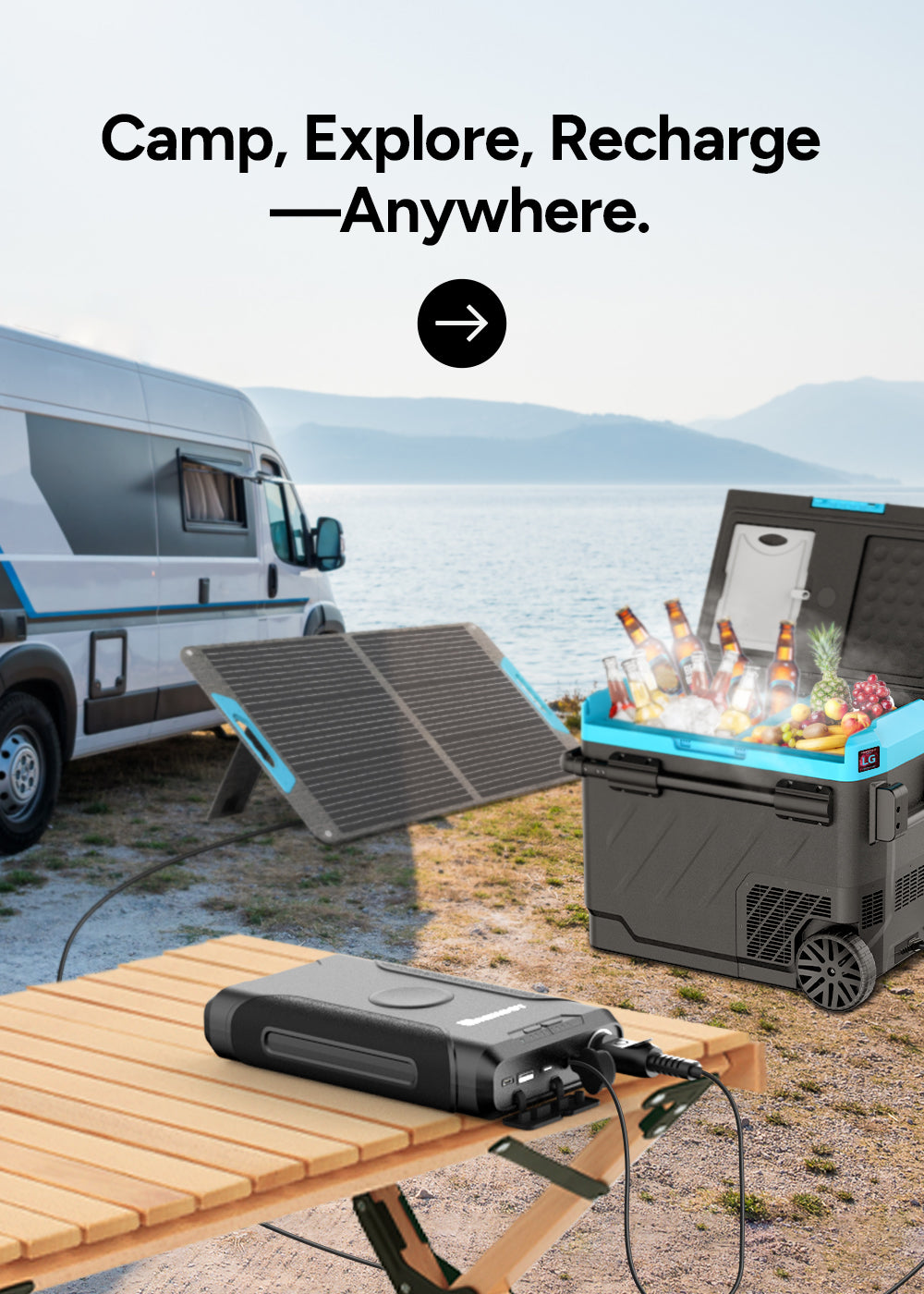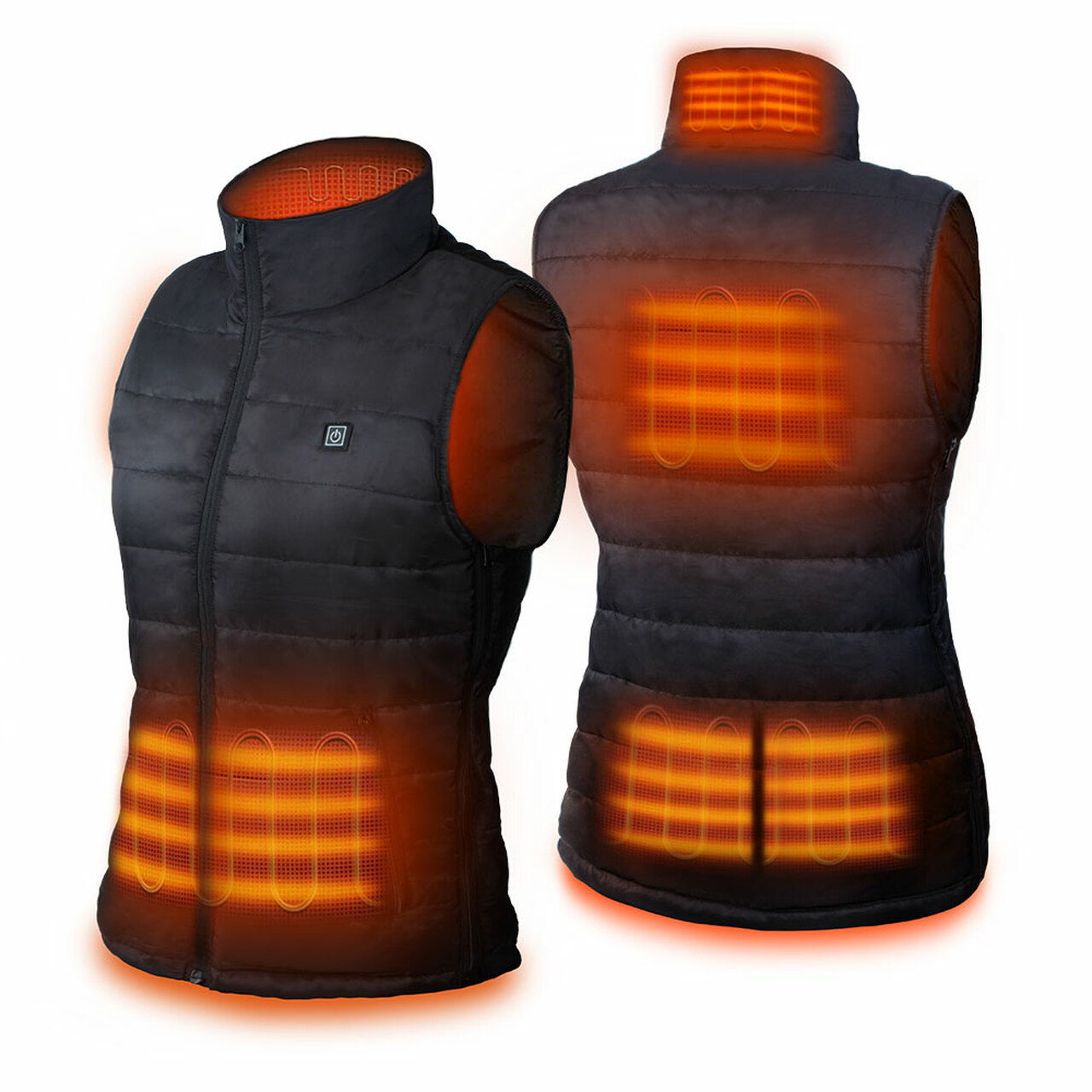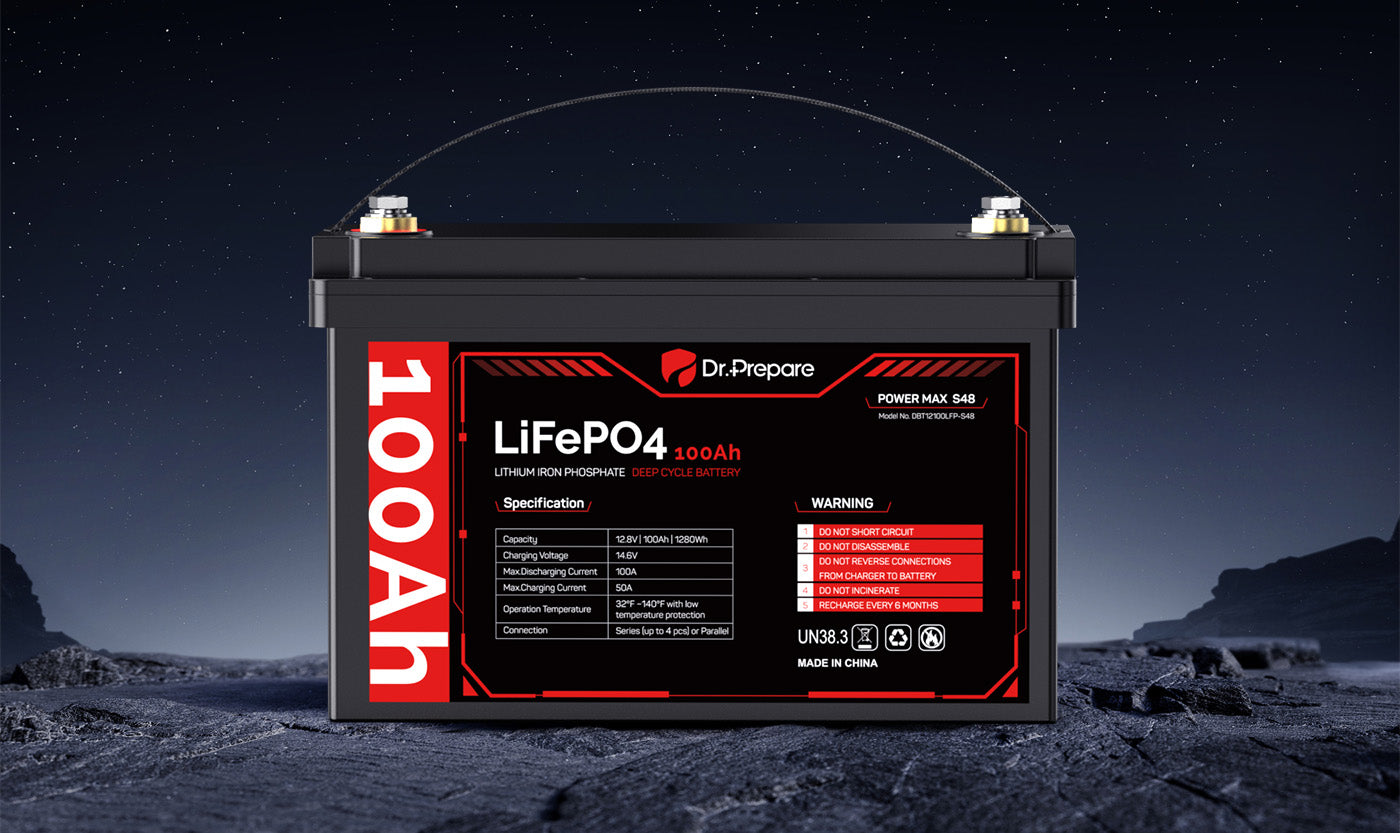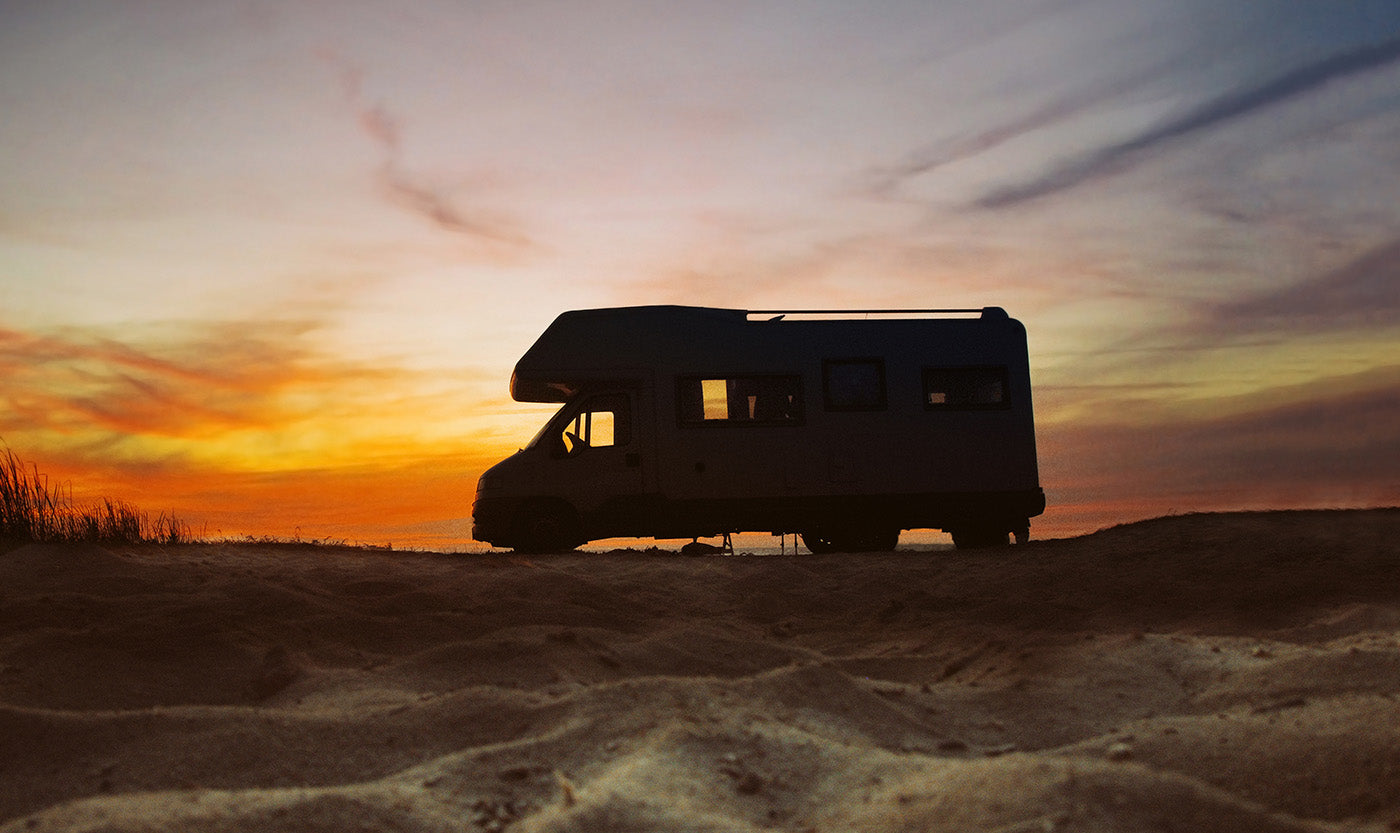There is always a time we wake up on a winter morning and find that the neighborhood is coated in ice and snow. Soon, we notice that all TV networks are covering a snowstorm sweeping across the nation. It drops heavy snow and blows biting winds, leaving the transportation, national grid, and other utilities in chaos. Now you may have a strong sense of déjà vu and start wondering, "what if I can get ready for this in advance so that I can stay safe and healthy with power during snowstorms?"
Why Emergency Preparedness Matters
Snowstorms are common in the winter seasons, but they can also occur in late autumn or early spring. They bring large amounts of snowfall and can last for days or weeks. Consequently, the standing trees burdened with snow are likely to fall on cars and block roads. If accumulated on roofs, snow can cave the roofs of houses and get people injured. Worst of all, the AC transmission towers may be overwhelmed by ice loading and a sharp rise in need for power, leaving thousands and millions of people chilling without power. As shown in a guide released by American Red Cross, there are hundreds of casualties of blizzards, cold temperatures, or improper use of heaters each year during cold weather in the United States.
However, we still have a chance to reduce damages as much as possible if we get prepared in unity before the snowstorms whip across our homeland. FEMA, also known as Federal Emergency Management Agency, proposes that the society should "build a culture of preparedness" in the 2018-2022 FEMA Strategic Plan. Likewise, The President' National Infrastructure Advisory Council (NIAC) suggests that the community understand how the winter storms can impact our life and survival. We can be safe, healthy, and powerful when confronting natural disasters through joint efforts into emergency preparation.
Get Backup Power Supply Ready
When a snowstorm strikes, it brings high winds and heavy snows along. This may overwhelm the power grid and reduce its capacity to support heat, communication, and other services. Suppose the storm stretches to days or weeks. In that case, the extreme weather conditions may prevent the grid from working normally for electricity distribution. Meanwhile, more and more residents rely on heaters to stay warm, enabling the energy demand to rise drastically. Increasing power demands is one of the reasons why Texas went through massive blackouts in early 2021.
Another factor contributing to the power failure in Texas is its unique power system. Unlike other states powered by two major power grids in the nation, the Eastern Interconnection and the Western Interconnection, Texas manages its power grid independently and is not overseen by federal institutions. To avoid complete power breakdown caused by extreme weather and rising power demands, Texas decided to initiate rolling blackouts. In this way, the Texas government hopes that its grid remains operating to fulfill residents' energy needs while keeping the power generation under capacity.
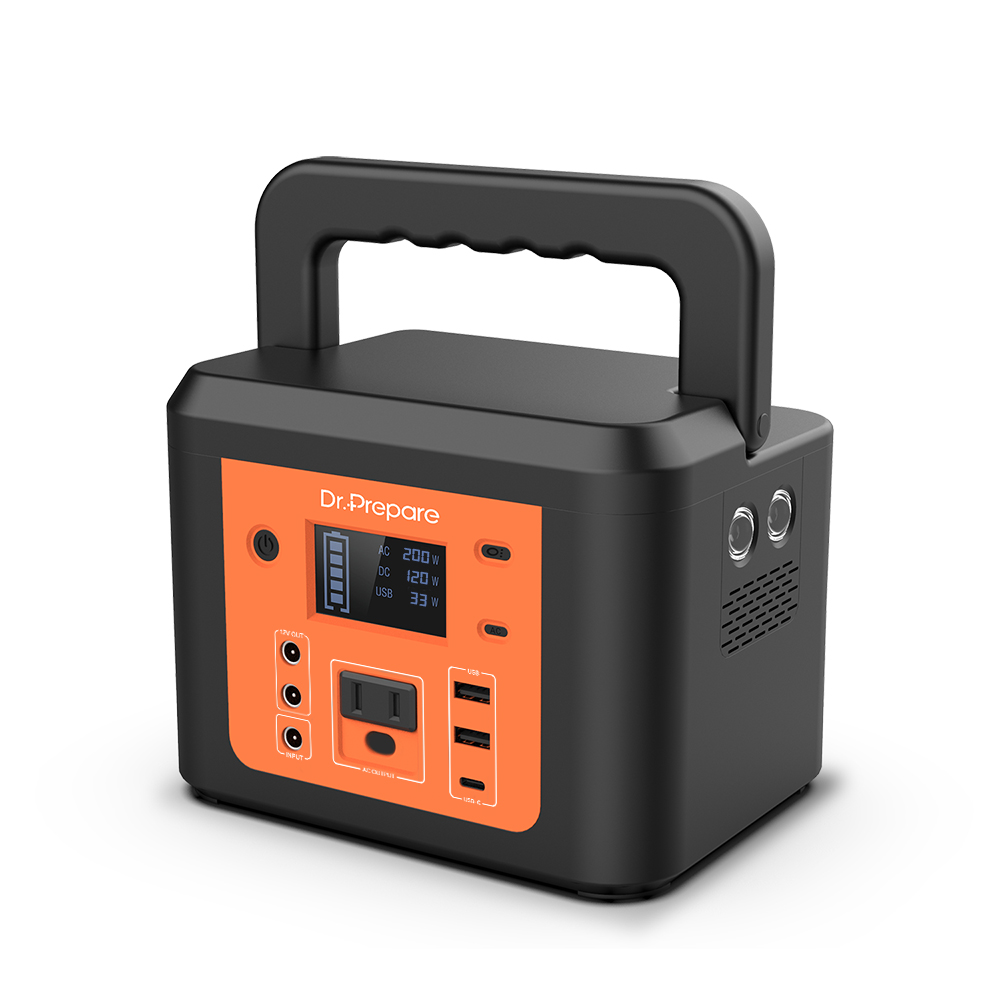 If we have learned anything from these devastating events, it's that we should ready ourselves with a reliable backup power supply for the fickleness of nature. Therefore, a portable power station is an excellent choice if you want to charge phones and run multiple appliances in the event of power outages. Dr. Prepare presents 178Wh Portable Power Station to solve this problem. Packed with 48000mah lithium battery packs, this compact AC & DC power supply only measures 7 x 4.2 x 4.2 inch and 4.4 lb. With an ergonomic handle to grasp, you can carry it around effortlessly. Compared with gas-powered generators, this battery-powered generator does not require fuel or gasoline to operate. So you don't have to be bothered with excessive fumes, pollution, or noises.
If we have learned anything from these devastating events, it's that we should ready ourselves with a reliable backup power supply for the fickleness of nature. Therefore, a portable power station is an excellent choice if you want to charge phones and run multiple appliances in the event of power outages. Dr. Prepare presents 178Wh Portable Power Station to solve this problem. Packed with 48000mah lithium battery packs, this compact AC & DC power supply only measures 7 x 4.2 x 4.2 inch and 4.4 lb. With an ergonomic handle to grasp, you can carry it around effortlessly. Compared with gas-powered generators, this battery-powered generator does not require fuel or gasoline to operate. So you don't have to be bothered with excessive fumes, pollution, or noises.
Small yet powerful, this little power beast features one AC outlet (110V, 180W Continuous, 200W Peak), two DC 12V ports, an 18W USB-C Power Delivery port, and two USB-A ports. With these diverse power outlets, the emergency power supply can juice up a wide range of devices, including laptops, CPAP, smartphones, tablets, drones, desk fans, and more. After each use, you can plug the power station with the attached adapter into a car port, solar panels, or a wall outlet to restore the power supply timely. Furthermore, it comes with an intuitive LED screen, where you can keep track of charging in real time.
As for charging safety, the 178Wh power station is built in with a battery management system (BMS) to monitor charging and discharging actively. This offers you and your devices all-round protection against short circuits, overvoltage, overheating, and other potential hazards.
Keep Calm and Stay Warm
A drastic temperature drop is inevitable every time a blizzard hits the country. Staying warm can be a significant challenge in such extreme elements if the power supply is disrupted. If failed, people will have risks of suffering from hypothermia. So what is "hypothermia"?
hen your body core temperature drops below 95.0 °F (35.0 °C), this indicates you are suffering from hypothermia. You may only shiver or your limbs feel numbed at an early stage when your body temperature is much lower than usual. However, hypothermia can develop into a severe condition if the heat in the room is inadequate to warm up the body. You may suffer from higher risks of heart attacks and losing consciousness. Based on a report from Centers for Disease Control and Prevention (CDC) about death rates caused by excessive cold or hypothermia among persons aged ≥15 years, death rates are prone to increase with age. For those aged ≥ 85 years, the death rates attributed to hypothermia can reach 4.6 in urban areas and 8.6 in rural areas. Thus, it is essential to maintain core temperature, especially for children and the elderly.
Source: Centers for Disease Control and Prevention
To prepare for drastic temperature drops, ensure your house is insulated before the storm occurs. Proper insulation around the house can slow down the dissipation of heat. Both National Institute on Aging and Ready Campaign give a few tips on how to do it:
- * Set your heat to at least 68–70°F. To save on heating bills, close off rooms you are not using.
- * Caulk and weather-strip doors and windowsills to keep cold air out.
- * Learn how to keep pipes from freezing.
- * Install and test smoke alarms and carbon monoxide detectors to use heaters fueled by coal or wood.
- * Dress warmly on cold days when you are staying in the house.
Now with a heated vest inside your down jacket or coat, you can easily keep your core warm in the freezing house. Dr. Prepare USB Heated Vest for men and women, which combines function and style, is a good fit for this job. The unisex quilted vest features six heating zones to keep your neck, chest, back, and other key body parts toasty and relieve numbness. With bringing you extra comfort in mind, this lightweight heated vest has three heat levels (High: 131°F, Medium: 122°F, Low: 113°F). At a simple press on the switch near the chest, you can start adjusting the heating temperatures and find a comfort level that best meets your needs.
Compared with most AC-powered heated apparel on the market, Dr. Prepare Rechargeable Heated Vest is designed to be powered by USB. This gives you more flexibility to keep warm while moving around the house when the grid power is shut down. Plug into a 5V/2A or a 5V/2.4A USB port of a 10000mAh (an ideal balance between capacity and weight) portable power bank. You can enjoy lasting warmth for up to 7 hours at Low Level, 5 hours at Medium Level, and 3 hours at High Level. Moreover, a chest pouch is added to the vest, where you can store the power bank easily on the go.
For heating apparel, the fit will influence the overall experience. If the vest is too loose, the heat will escape before the vest retains it to warm you up; if too tight, the vest will hinder you from moving freely. Dr. Prepare Heated Vest comes with four zippers on each side. You can try various combinations until you find a snug fit for maximum comfort and warmth.
Don't Forget Extra Foot Care
Keeping your feet dry and toasty is of great importance as well, in addition to keeping your core warm. When your core and feet are adequately protected, you can better fight against hypothermia when your area suffers from extended winter storms.
Feet are at the far end of your limbs and have large surfaces like hands. With fewer muscles, they are prone to cool down faster than the rest of your body parts and cause discomfort. In extreme weather, the risk of frostbites on toes rises sharply if one does not dress properly. When frostbite occurs, the color and feeling of the areas fade away, and tissues inside can be permanently damaged.
Meanwhile, people with diabetes, arthritis, Raynaud's Syndrome, and other underlying health conditions should closely monitor the health of their feet. Poor blood circulation on the feet may deteriorate these underlying health conditions. They may develop into major foot health issues if overlooked.
In cold weather, we advise you to take the following actions to prevent cold feet and other foot problems:
Make sure to wear thick and toasty socks and footwear whether you stay indoors or go outdoors. When wearing them, remember to avoid excessive moisture. Otherwise, the excessive moisture may contribute to the growth of bacteria, fungus, and smells on feet and cause discomfort.
If available, you can apply lotion to your feet so they won't be chapped when the weather is cold and dry. A foot massage also helps blood flow normally.
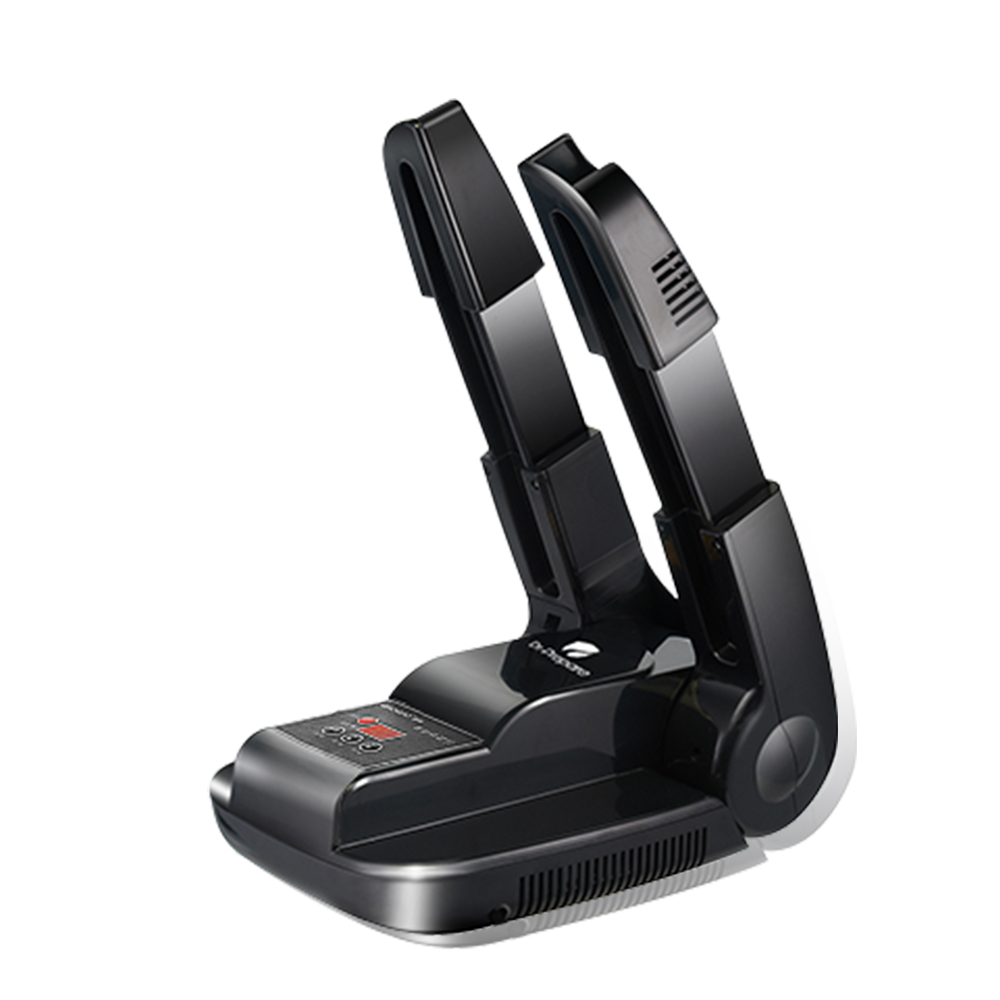 If your shoes or socks are wet after shoveling accumulated snow in the yard, we recommend you to take them off instantly when you are back inside. This is when Dr. Prepare Shoes & Boot Dryer (Ozone Version) will make a difference. It comes with extendable drying tubes (up to 14.3 inches), allowing you to place sneakers, short boots, socks, gloves, and other footwear/gear on them. A fan is built in the boot dryer and deodorizer for consistent warm air (104-122°F) to actively rise up and circulate inside the footwear to ensure optimal drying performance. Want to reduce bad smells? You can choose to dry your gear with ozone. Press the ozone button, and this boot warmer starts giving off ozone to eliminate odors caused by sweat, ensuring your gear is comfortable and hygienic over time.
If your shoes or socks are wet after shoveling accumulated snow in the yard, we recommend you to take them off instantly when you are back inside. This is when Dr. Prepare Shoes & Boot Dryer (Ozone Version) will make a difference. It comes with extendable drying tubes (up to 14.3 inches), allowing you to place sneakers, short boots, socks, gloves, and other footwear/gear on them. A fan is built in the boot dryer and deodorizer for consistent warm air (104-122°F) to actively rise up and circulate inside the footwear to ensure optimal drying performance. Want to reduce bad smells? You can choose to dry your gear with ozone. Press the ozone button, and this boot warmer starts giving off ozone to eliminate odors caused by sweat, ensuring your gear is comfortable and hygienic over time.
The addition of an intelligent timer brings the drying experience to the next level. You can set a drying timer up to 99 minutes based on how wet your gear is. In addition, the activation timer allows you to set the dryer to operate after a specific period from 0.5 hours to 24 hours. Plus, Dr. Prepare integrates overheating protection and air vents for secure operation. So you can place shoes on your dryer before going to bed and wake up to find the footwear dry and toasty.
Keep Emergency Light Handy
When the local grid shuts down due to violent snowstorms, you may find it challenging to access reliable lighting. That's why your emergency kit should include a flashlight, so you don't have to fumble around the house for it. With a flashlight around, you can have a quick mechanic check on vehicles, home appliances, or the electrical panel to make sure they are in good condition or not. When seeking a reliable emergency flashlight/lighting, you can consider the following features:
- * Lumens: this term indicates the amount of visible light emitted from a single light source. Usually, an LED lamp is more efficient than an incandescent light bulb when producing the same light.
- * Battery Life: more and more flashlight comes with a USB input port for effortless charging. You don't have to swap batteries over and over. A rechargeable flashlight usually delivers hours of brightness on a full charge.
- * Flexibility: a flashlight with a compact size and textures provides a better grip when holding it for inspection.
- * Durability: choose flashlights constructed with resilient materials providing rigidity and impact-resistance, such as ABS.
Dr. Prepare turns these practical considerations into a 700 lumens folding work light. With a slim profile and folding design, this flexible LED work light can flip back and forth for 360° to light up a wide area. It is easy to shed light on hard-to-reach spots inside engines as well. If you want to adjust brightness, dial the switch without being distracted from the task at hand.
To further ease the use, this portable work lamp equips with a magnet on the base, so you can attach it to the metal surfaces and free your hands. Concerning the battery life, this rechargeable work light, built in with a 3200mAh battery, can boast max. 72-hour brightness for LED light (top) and max. 30-hour battery life for COB light (front) on low. With a sturdy ABS construction, this battery-operated work light is sure to be your reliable light source for major DIY projects, repairs & maintenance, and emergencies.
Takeaways
Catastrophic winter disasters can be unexpected, but most are predictable. Usually, winter storm or blizzard warnings can be issued 12 to 24 hours early before the event strikes. Please keep an eye on the latest weather forecast between the gap and take precautions instantly on receiving warnings. Ready your family with a backup power supply, toasty heating apparel, drying gear, and reliable emergency lighting In advance. You will feel more confident to stay safe and warm when facing winter storms, tornados, massive blackouts, low body temperatures, and other serious challenges.
Want to share how you prepare for emergencies in the winter seasons? What other things will you add to you emergency kit?
1. Feel free to let us know your emergency plan to get a max. $100 COUPON CODE.
2. You can find us on Facebook and Instagram. Share your ideas and stories on these platforms, and don’t forget to tag @Dr.Prepare. (Otherwise, we may miss your sharing.)
3. 10 winners with higher number of likes within 1 month will respectively win a coupon code ranging from $100 to $10. (Top 1 gets $100, Top 2 gets $90, etc.)
------------------------------------------------------------------------------------------------------------------------------------------------------------
Works Cited
1. Winter Storm Safety. (n.d.). Retrived from https://www.redcross.org/
2. Federal Emergency Management Agency. (September 30, 2018.). FEMA Strategic Plan 2018-2022. Retrived from Federal Emergency Management Agency
website: https://www.fema.gov/media-collection/2018-2022-strategic-plan
3. The President’s National Infrastructure Advisory Council. (December, 2018.). Surviving a Catastrophic Power Outage-How to Strengthen the Capabilities of the Nation. Retrieved from The President’s National Infrastructure Advisory Council. website: https://www.cisa.gov/sites/default/files/publicat...
4. QuickStats: Death Rates* Attributed to Excessive Cold or Hypothermia† Among Persons Aged ≥15 Years, by Urban-Rural Status§ and Age Group — National Vital Statistics System, United States, 2019. (February 19, 2021.). Retrived January 19, 2022, from Center for Disease Control and Prevention (CDC)
website: https://www.cdc.gov/mmwr/volumes/70/wr/mm7007a6.h...
5. Cold Weather Safety for Older Adults. (January 1, 2018.). Retrived January 19, 2022, from National Institute on Aging
website: https://www.nia.nih.gov/health/cold-weather-safet...
6. Winter Weather. (January 11, 2021.) Retrived January 19, 2022, from Ready
website: https://www.ready.gov/winter-weather
